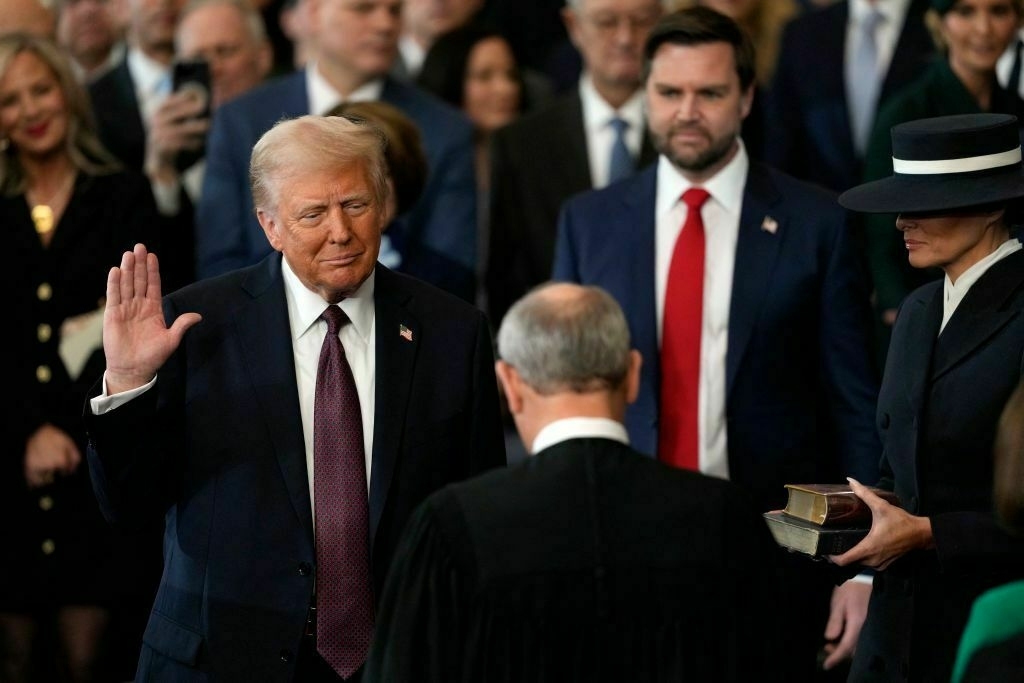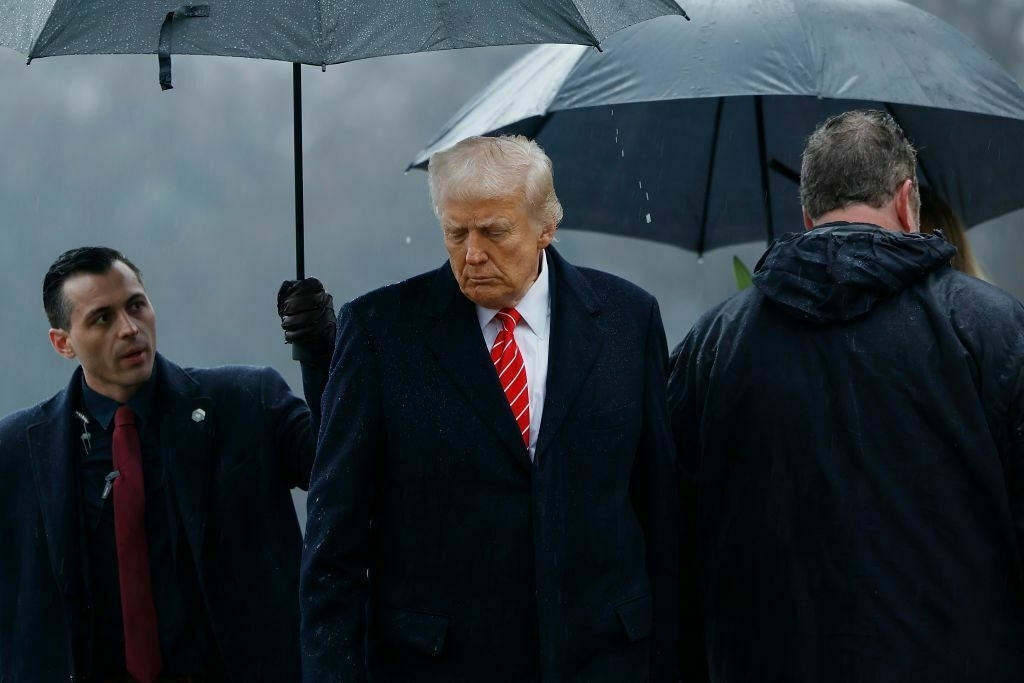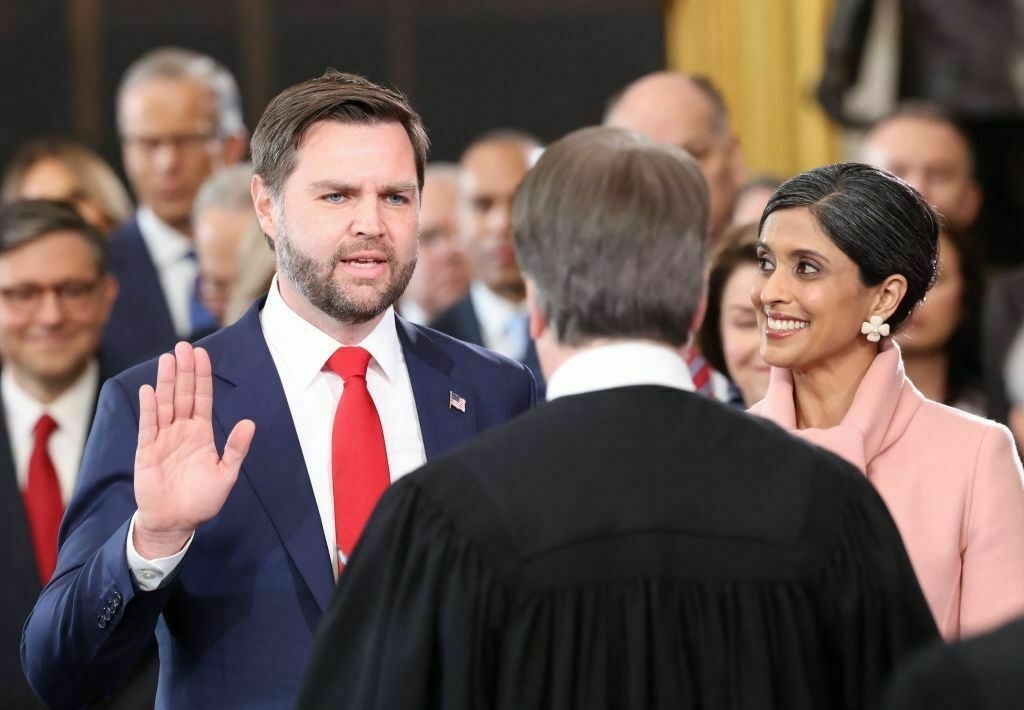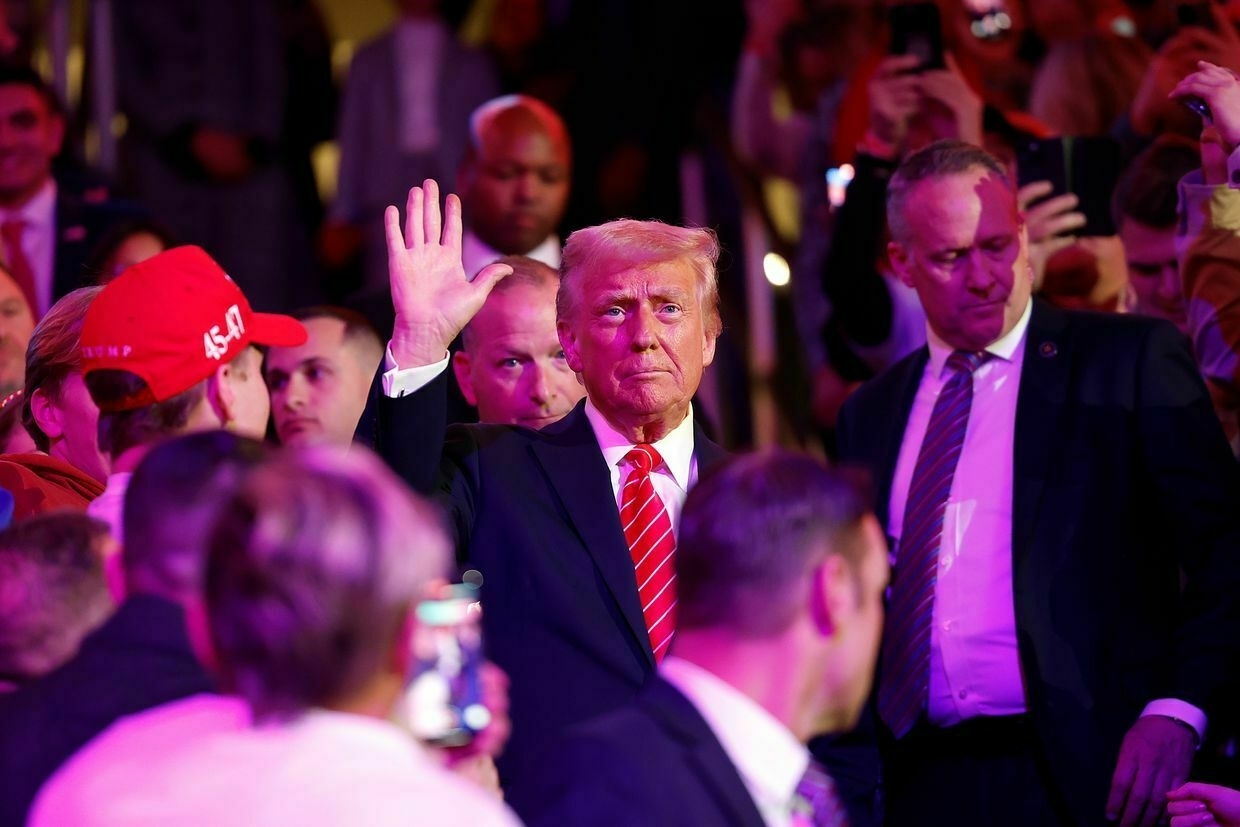
Donald Trump was sworn in as the 47th president of the United States in a ceremony held in the United States Capitol on Jan. 20.
“Golden age of America begins right now,” Trump said.
Vice President J.D. Vance took the oath of office alongside the president.
Trump assumes office as the war in Ukraine enters its third year. While Trump initially vowed to end the war within 24 hours, his team later revised the timeline to 100 days, citing the intricate challenges of resolving the conflict.
Ukraine remains cautious about the incoming administration, as Trump’s past remarks on NATO and his perceived sympathies toward Russian President Vladimir Putin raise concerns about potential compromises unfavorable to Kyiv.
 The Kyiv IndependentOleg Sukhov
The Kyiv IndependentOleg Sukhov
During his first meeting with President Volodymyr Zelensky in December, Trump acknowledged Ukraine’s desire for a ceasefire but avoided discussing specifics.
Trump has pledged to meet with Putin “very quickly” and has tasked his aides with organizing a call. According to CNN, discussions for a face-to-face meeting are ongoing.
Since his election victory on Nov. 5, Trump and his administration have sent mixed signals about their approach to peace. Trump’s national security picks illustrate a range of perspectives on Russia’s war against Ukraine.

Tulsi Gabbard, nominated for director of national intelligence, has opposed U.S. support for Ukraine and faced criticism for echoing Russian narratives.
Michael Waltz, the likely national security advisor, and Marco Rubio, the secretary of state nominee, are considered hawkish on Russia.
Defense Secretary nominee Peter Hegseth, an isolationist, walked back earlier calls to scale back U.S. involvement in NATO during confirmation hearings, emphasizing the alliance’s importance.
Special envoy nominee for Ukraine and Russia Keith Kellogg has co-authored a draft peace plan involving a frozen front line, a delay in Ukraine’s NATO membership, and European peacekeepers in Ukraine.
The plan also reportedly proposes continued U.S. military aid and security guarantees for Kyiv, though it partially lifts sanctions on Russia. Kellogg insists the proposals aim to “save Ukraine and their sovereignty,” not to appease Russia.
Moscow has dismissed Trump’s signals as “unformed” and reiterated demands for Ukraine’s territorial concessions and NATO exclusion.
Putin has expressed willingness for dialogue, though he maintains his insistence on Russia’s terms, including complete control of four Ukrainian regions.
Trump has urged European leaders to take a more active role in deterring Russian aggression, including deploying peacekeepers and pressuring China to influence Russia through trade measures.
Officials close to Trump maintain that U.S. military aid to Ukraine will persist, focusing on empowering Kyiv to negotiate from a position of strength.
 The Kyiv IndependentTimothy Ash
The Kyiv IndependentTimothy Ash
